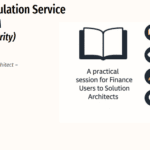

SB508 – Pricing Methods and Discounts in Subscription Billing for D365 Finance
Table of Contents
Toggle🌐 Introduction
Welcome to SB508 in our Subscription Billing blog series! After understanding item types in SB507, we’re now focusing on one of the most powerful and flexible features in Dynamics 365 Subscription Billing: Pricing Methods and Discounts.
In this post, we’ll explore all the pricing strategies you can apply using real CRM SaaS items like SBX-CRM-M01, SBX-CONS-API01, TMB-DATA20M, and SBX-MEA-BUNDLE, while making your billing scalable, accurate, and customer-friendly.
🧾 What Are Pricing Methods?
Each billing schedule line in D365 can be assigned a Pricing Method to control how the price is calculated. The core pricing methods are:
- Standard
- Flat
- Tier
- Flat Tier
Each method can be layered with:
- CPI-based escalation
- Promotional discounts
- Free usage, min/max thresholds
- Bundle pricing and revenue allocations
Standard Pricing
🧠 What It Is
Standard pricing pulls the item’s price from the trade agreement or the product’s sales price in the released product setup. It’s system-driven and ideal for scenarios where pricing is centrally managed.
Note – System will look for active trade agreement line. It not found; it will use item sales price from released product
🛠 Example from CRM SaaS
- API usage item SBX-CONS-API01 is priced at £0.08 per call for partners, and £0.10 for standard customers, based on trade agreements.
Partners cost

Customer cost via Trade agreement

✅ Ideal For
- Price management via trade agreements
- Volume-based customer pricing tiers
- Partner/customer-specific rates
⚙ How it works
- D365 looks up trade agreement or item price
- Price auto-calculates on the billing line
- Manual override not allowed unless pricing method is changed to Flat
📍 Setup Location
- Pricing Method = Standard

- Maintain prices in Sales and Marketing > Prices and Discounts > Trade agreements
Flat Pricing
🧠 What It Is
Flat pricing allows a fixed amount to be directly entered per billing schedule line. No price lookup happens.
🛠 Example from CRM SaaS
- CRM License → SBX-CRM-M01
Price manually entered as £500/month
✅ Ideal For
- Fixed monthly billing
- Setup charges
- Support plans
⚙ How it works
- You define the unit price manually on the billing line
- Great for full control of what gets charged
📍 Setup Location
- Pricing Method = Flat
- Enter price on each billing schedule line manually

Tier Pricing
🧠 What It Is
Tiered pricing charges based on volume thresholds, with variable price per tier.
E.g., first 10,000 API calls = £0.10
Next 10,000 = £0.08
Anything over 20,000 = £0.05
🛠 Example: API Usage → SBX-CONS-API01
| Tier | Usage Range | Price/Unit |
| 1 | 1–10,000 | £0.10 |
| 2 | 10,001–20,000 | £0.08 |
| 3 | 20,001 and above | £0.05 |

💡 If customer uses 25,000 API calls:
- 10k × £0.10 = £1,000
- 10k × £0.08 = £800
- 5k × £0.05 = £250
Total Invoice = £2,050

✅ Ideal For
- Usage billing (API, data, SMS)
- Tiered service levels
- Volume discounts
⚙ How it works
- Define tiers under Billing schedule line > Tier setup
- Enter usage at end of each period
- System calculates based on actual tier level
📍 Setup Location:
- Pricing Method = Tier
- Define tiers in line → Tier pricing tab
- Usage entered via Open in Excel or Data Management

Flat Tier Pricing
🧠 What It Is
Charges a flat fee per tier, rather than a rate per unit.
Let’s see with same example above. I set flat tier prices on trade agreements
🛠 Example: API Usage → SBX-CONS-API01
| Tier | Usage Range | Flat Tier |
| 1 | 1–10,000 | £1000 |
| 2 | 10,001–20,000 | £8000 |
| 3 | 20,001 and above | £5000 |

💡 If the customer uses between 0-10,000 API calls, the system will apply a flat tier price of £1000. If the customer uses above 25,000 API calls, the system will apply a flat tier price of £5000.

✅ Ideal For
- Telecom plans
- Hosting/storage
- Streaming plans
- Pre-paid packages
⚙ How it works
- System checks usage, then applies the flat rate associated with that usage range
📍 Setup Location
- Pricing Method = Flat Tier
- Use Tier tab to define range and fixed amount per tier
🔍 Advanced Pricing
🧠 What It Is
Advanced pricing allows you to fine-tune usage billing by setting free quantity, minimum/maximum charges, and usage reset frequency, beyond basic tier logic.

🛠 Example: API Billing – SBX-CONS-API01
Let’s say:
- Customers get the first 1,000 calls free
- Then they’re billed at £0.08 per call
- But you want to cap the charge at £500 per month and Minimum charge of £100

💡 If a customer uses 10,500 calls in a month:
- 1,000 are free
- 9,500 × £0.08 = £760
- But charge is capped at £500

💡 If a customer uses 10,001 calls in a month:
- 1,000 are free
- 1 × £0.08 = £0.08
- But Min charge is capped at £100

✅ Ideal For
- Fair-use models (free tier + usage)
- Capped subscriptions
- API and storage services
⚙ How It Works
- Set advanced pricing rules at the Billing schedule line > Advanced pricing tab
- System applies logic after usage is entered
- Max/Min take priority after free units are subtracted
📍 Setup Location
Billing Schedule line → Advanced Pricing tab
🔁 CPI Escalation (Price Uplift)
🧠 What It Is
Automatically adjusts recurring pricing based on Consumer Price Index (CPI) or a custom % uplift.

🛠 Example: Annual CRM Support Plan → SBX-RNW-ANN1
- Year 1 = £6,000
- CPI = 5%
- Year 2 = £6,300 (auto-adjusted)
Add Escalation Rule to the Billing Schedule Line



✅ Ideal For
- Annual renewals
- Multi-year contracts
- Escalating support plans
⚙ How it works
- Enable Escalation = Yes in the Billing Schedule Group

- Define escalation percent and frequency

Lines to add per interval =1

Line Details > Escalation and discount

- D365 automatically updates line pricing at renewal

📍 Setup Location
Subscription Billing > Recurring contract Billing > Setup > Consumer price index schedule
🎁 Discounts
🧠 What It Is
Apply either:
- Percentage discounts
- Fixed amount discounts
Can be used for promotional offers, bundle incentives, or loyalty pricing.
🛠 Example
Offer 10% discount on CRM + Support bundle
- CRM Monthly = £500
- Tech Support = £150

- Discount = 10% (Apply to both lines)

- Invoice total = £585 instead of £650

✅ Ideal For
- Multi-line bundles
- Contract incentives
- Loyalty rewards
⚙ How it works
- Add discount at Billing line > Escalation and Discount tab
- Specify % or fixed amount
📍 Setup Location
Each billing schedule line → Click Escalation and Discounts tab
📦 Bundled Pricing
🧠 What It Is
Combine multiple items into one parent item, distribute revenue across child items, and optionally hide/show on invoice.
🛠 Example: CRM + Support + API Bundle → SBX-MEA-BUNDLE
- Total Bundle = £1,000
- Breakdown:
- CRM = £500
- Support = £150
- API = £0.08

You can:
- Invoice only the parent bundle item
- Allocate revenue across the children
- Split GL posting based on allocation
✅ Ideal For
- Unified subscriptions
- Device + service plans
- Software bundles with add-ons
⚙ How it works
- Use Parent line = Yes
- Attach child lines with % or amount allocation
- Set visibility on invoice (show/hide child)
📍 Setup Location:
- Billing schedule line → Revenue allocation tab
- Or use MEA module for more advanced splits
✅ Summary
With these pricing methods, you can model nearly any subscription scenario in D365 Finance. Here’s a quick decision matrix:
| Method | Description | Use Case | Example |
| Flat | Fixed price manually entered on the billing line. | Simple recurring billing | CRM License (SBX-CRM-M01) |
| Tier | Charges per unit vary based on volume tiers. | Usage-based billing with scalable rates | API Usage (SBX-CONS-API01) |
| Flat Tier | Applies a flat fee based on usage falling within tier range. | Pre-paid plans, capped bundles | Data Plan (TMB-DATA20M) |
| Escalation | Automatically increases price based on CPI or % uplift. | Multi-year contracts, renewals | CRM Annual Renewal (SBX-RNW-ANN1) |
| Discount | Applies percentage or amount-based price reductions. | Promotions, loyalty pricing, bundles | 10% off CRM + Support Bundle |
| Bundle Split | Splits a single price across multiple items using MEA logic. | Unified services or hardware + service deals | CRM + Support + API (SBX-MEA-BUNDLE) |
| Advanced Pricing | Adds controls for free units, min/max billing, and reset cycles. | Fair use models, capped billing plans | 1,000 free API calls, £500 max per month (SBX-CONS-API01) |
🔜 Coming Up Next: SB509
In SB509, we’ll explore all invoicing options available in D365 Subscription Billing, including Sales orders vs Free text invoices, how to handle consolidated billing, and how to manage invoicing in arrears. You’ll learn how to automate invoicing, apply filters like billing period end dates, and choose the right format for your billing model—using real scenarios with items like SBX-CRM-M01, SBX-MEA-BUNDLE, and SBX-SUPP-M.
Expand Your Knowledge: See More Subscription Billing Blogs
I am Yogeshkumar Patel, a Microsoft Certified Solution Architect and Enterprise Systems Manager with deep expertise across Dynamics 365 Finance & Supply Chain, Power Platform, Azure, and AI engineering. With over six years of experience, I have led enterprise-scale ERP implementations, AI-driven and agent-enabled automation initiatives, and secure cloud transformations that optimise business operations and decision-making. Holding a Master’s degree from the University of Bedfordshire, I specialise in integrating AI and agentic systems into core business processes streamlining supply chains, automating complex workflows, and enhancing insight-driven decisions through Power BI, orchestration frameworks, and governed AI architectures. Passionate about practical innovation and knowledge sharing, I created AIpowered365 to help businesses and professionals move beyond experimentation and adopt real-world, enterprise-ready AI and agent-driven solutions as part of their digital transformation journey. 📩 Let’s Connect: LinkedIn | Email 🚀
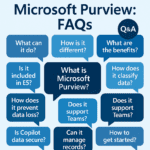
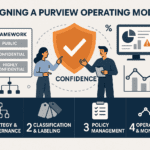
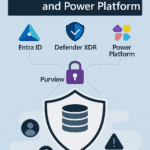




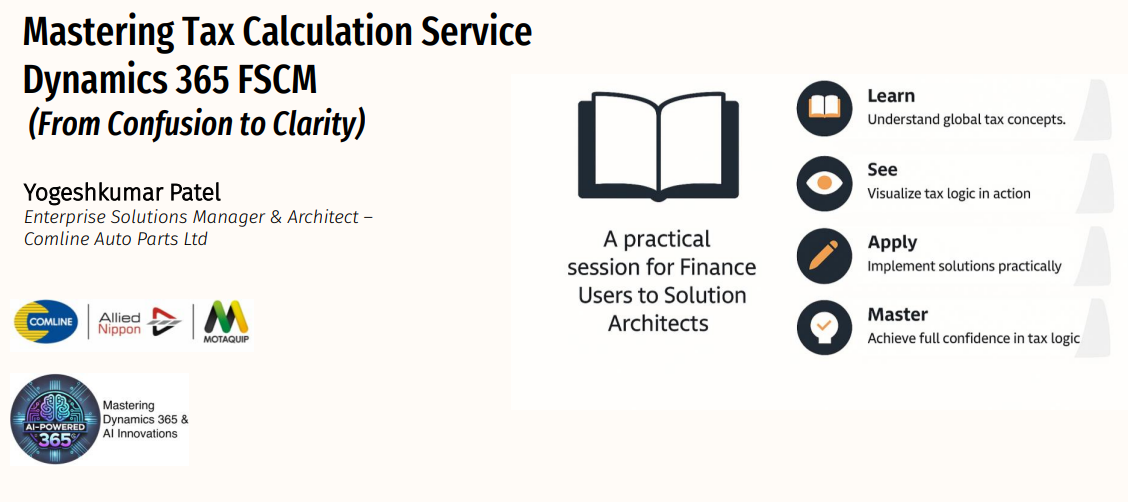
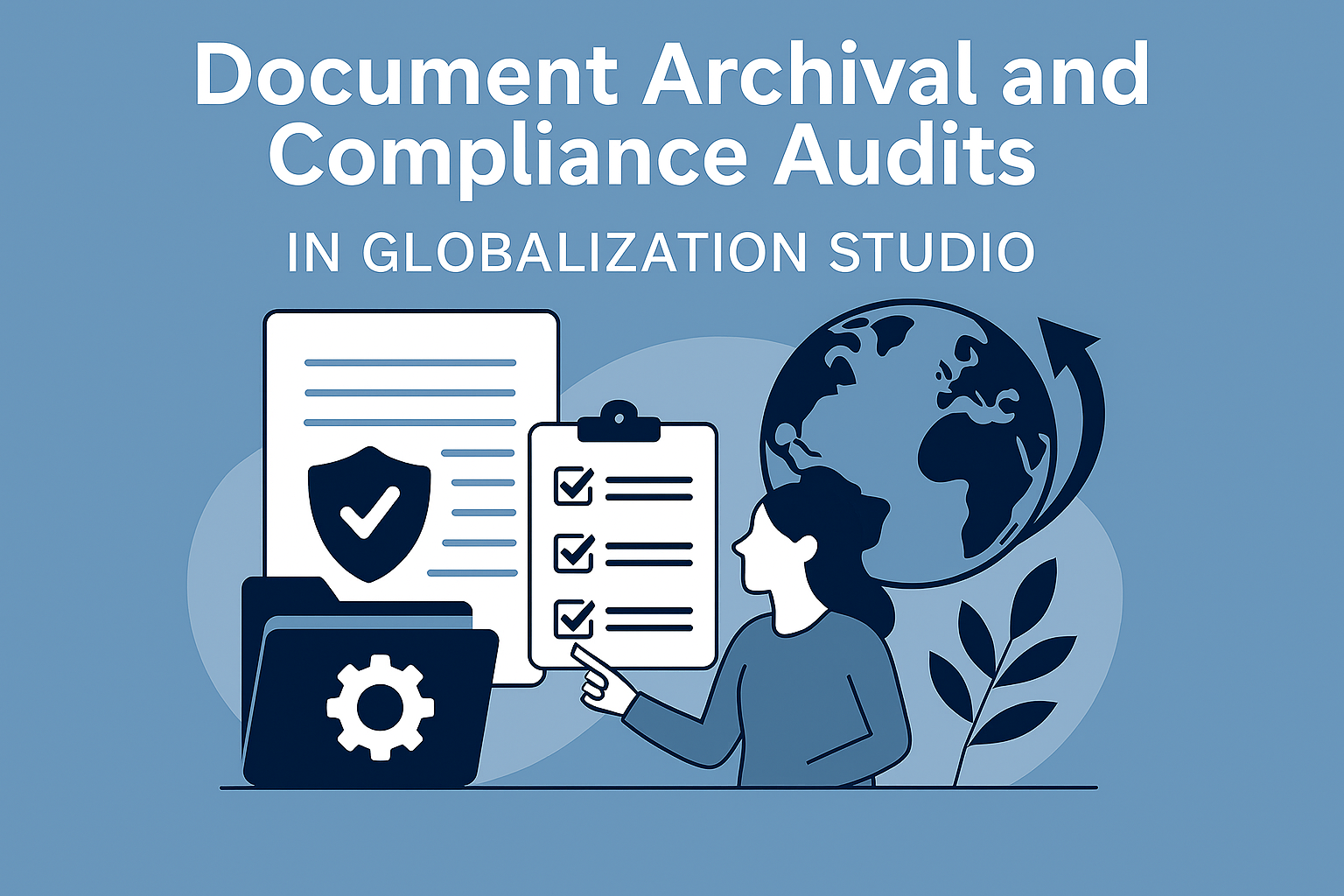
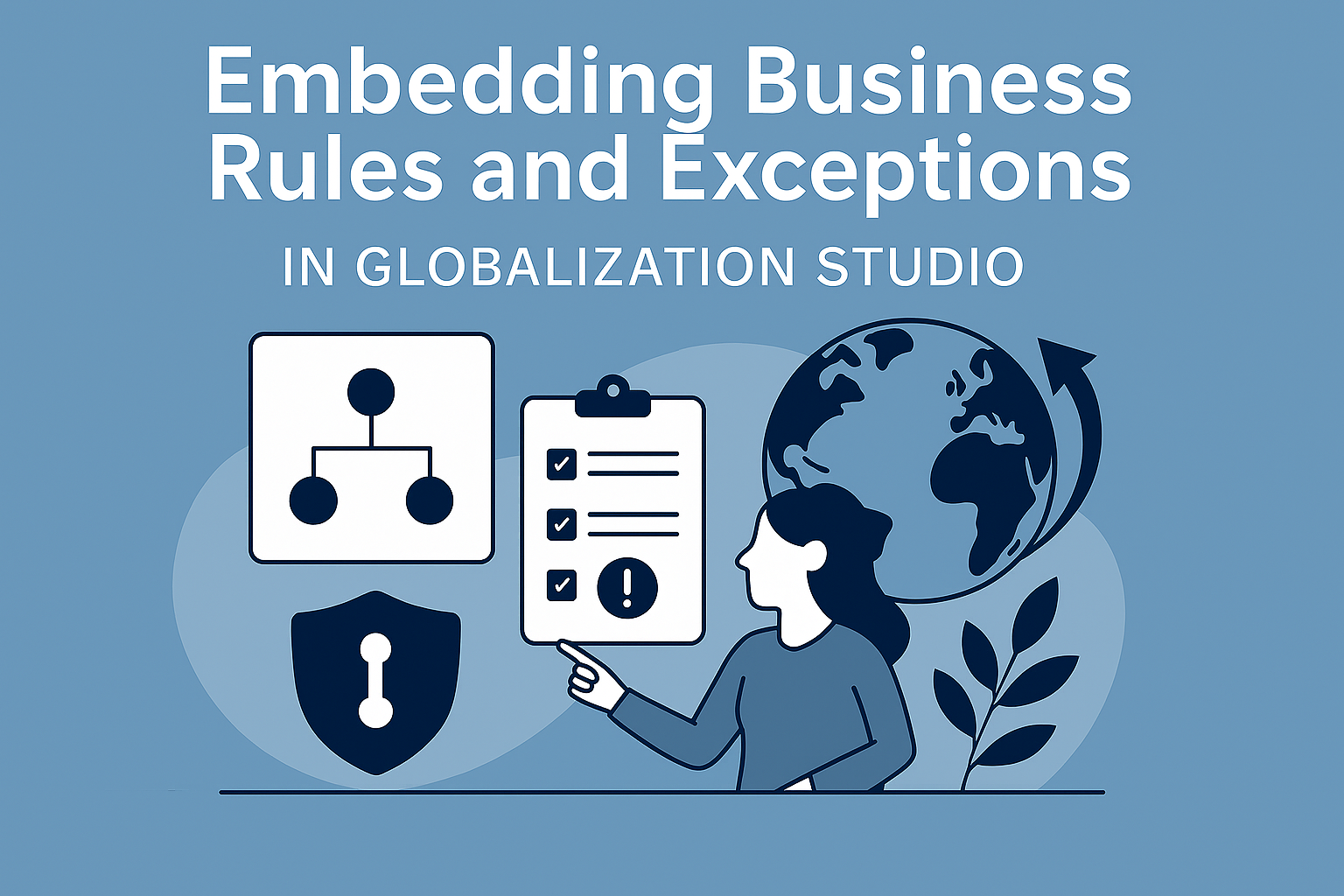



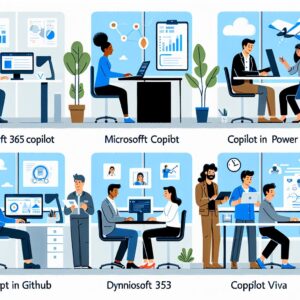
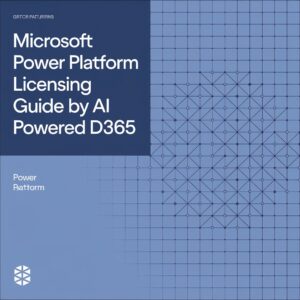





Post Comment